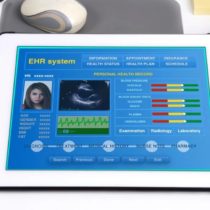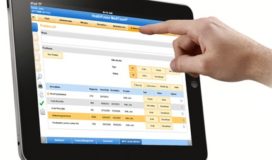
Differences between Electronic Medical Records (EMR) and Electronic Health Records (EHR)
EMR and EHR are the latest buzzwords in the health industry. In a recent medical survey, it was found that only 7% of the physicians know the actual difference between these two terms.
Not only physicians and medical experts, but even patients use these terms “electronic medical records” and “electronic health records” interchangeably. However, there are clear and obvious differences between EHR and EMR.
What is Electronic Medical Records (EMR)?
EMR or electronic medical records means the digital version of the patient chart having information stored on the computer system. Thus every paper of the patient such as his medical history, lab tests, diagnoses etc is stored in the system rather than in the form of bulky paper files. While this works well within a practice, but these are limited because these can’t go outside of the premises of the organization.
Clinicians can use electronic medical records to:
- Keep track of data throughout period.
- Determine whether patients require preventive screenings or checkups with ease.
- Examine how their individuals are performing on particular measures, like as cardiovascular diseases or immunizations.
- Inside the clinic, evaluate and enhance the quality of healthcare services.
However, data in EMR does not easily leave the organization. It’s possible that the person’s record would have to be copied and sent to experts and other participants of the medical team. EMR aren’t any different from paper files in this respect.
This is where the actual difference between EHR and EMR comes into the light.
What is Electronic Health Records (EHR)?
EHR or electronic health records are digital health information of the person. It contains much more than what is already included in EMR. EHRs include vital signs, past medical history, diagnoses, progress notes, medications, allergies, lab data, immunization dates, and imaging reports. This information can travel outside the premises of the organization as well.
But it makes a significant difference. Since data becomes even more valuable when it is exchanged in a safe manner between clinics and medical organizations. Health care is a collaborative endeavor, and data exchange aids that process. And besides, much of the benefits determined by the public medical system is dependent on successful data transmission between participants and, eventually, the flexibility of numerous parties to collaborate in dynamic data exchange.
Basis of the differences between EMR and EHR
- Meaning: As discussed above EHR (Electronic Health Record) is the digital record of the health information of a person. While EMR (Electronic Medical Record) is the digital form of the patient’s chart maintained by the organization or provider.
- Sharing of Information: EHR system is designed in the way that it can be shared with all the providers involved in the patient’s care. Unlike the EHR, EMR is specifically created and designed to use the specific organization or physician and its data is stored on the Intranet.
- Patient’s Access to information: EHR contains all the health records of the concerned person. These records can be easily accessed and used by the same person to make the decisions about the treatment and the physicians. On the other hand, EMR is the medical record of the patient that is specifically for the use of the providers and the patient has limited access to it. This information cannot go outside the vicinity of the organization.
- Access to tools: An electronic health record comes with various tools that providers can use to make the important decisions about the treatment of the patient whereas all the tools provided by medical records system are limited to the diagnosis of the patient.
Benefits of EHR over EMR
- Better Result Management: An Electronic Health Records allows a patient to receive all the lab results, radiology reports etc that are generally kept to the provider in EMR.
- Lesser Paper Work: EMR records all the data into the system yet the staff needs to get the printouts to provide this data to a patient and other providers. But in case of HER, all such data can be shared online as well.
- More Support: There are various tools that help patients to get the important information via EHR and enter data themselves through online questionnaires and home monitoring devices.
Summary
Yes, there is a small distinction between EMR (electronic medical records) and EHR (electronic health data). However, there is a great gap in that distinction.
Overall, digital records are projected to make healthcare more functional and cost-effective, making the changeover a worthwhile investment for the medical infrastructure.
Sources:
- https://www.businessnewsdaily.com/10914-best-electronic-health-records-systems.html
- https://www.healthit.gov/faq/what-electronic-health-record-ehr




